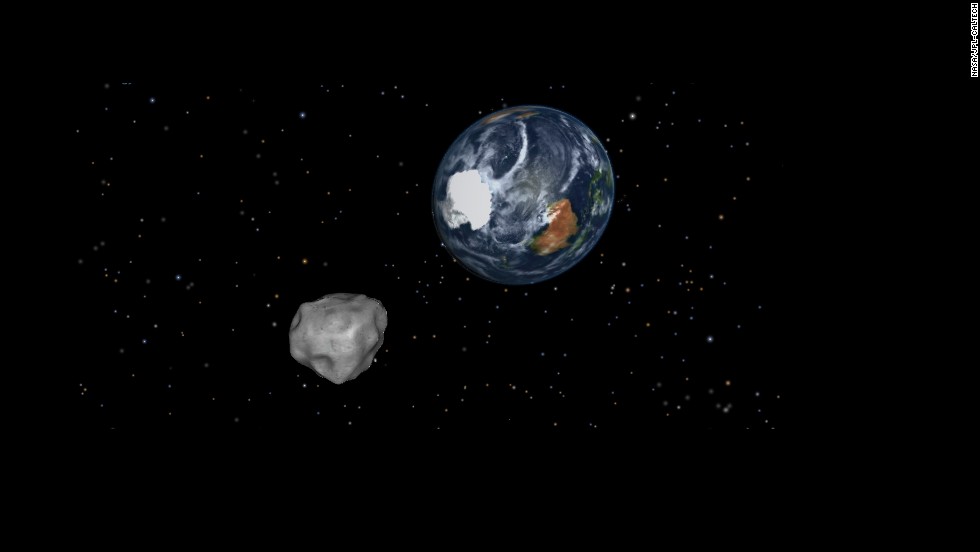
Good news Earthlings, we survived a “potential” asteroid collision.
NASA put out another statement this past week that asteroid 86666 (2000 FL 10) was going to pass safely by Earth on Saturday, seeking to quell what had become doomsday panic among some.
“It poses zero threat,” the space agency’s Near-Earth Object office tweeted, stating that the asteroid would miss our planet by 15 million miles.
For comparison’s sake, the moon is about 238,000 miles from Earth. At its closest, Venus is about 25 million milesaway from our planet.
The asteroid’s is estimated to be as large as 2.6 kilometers (1.5 miles), according to the NASA Near-Earth Object Program.
It’s the second time in the past few weeks that Earth stubbornly refused to cease to exist; ominous speculations surrounding the “blood moon” lunar eclipse of September 27-28 didn’t pan out, either.
Back in August, NASA released a statement clearly stating that there would be no threat after theories that a large asteroid would hit Earth went viral.
“There is no scientific basis — not one shred of evidence — that an asteroid or any other celestial object will impact Earth” on the rumored dates, NASA’s Paul Chodas, manager of the Near-Earth Object office, said in August. The agency’s office is at Pasadena, California’s, Jet Propulsion Laboratory.
That’s not to say that NASA hasn’t missed near-Earth objects in the past. In February 2013, a meteor streaked through the skies of Russia’s Ural region and exploded.
The space agency said the meteor was a small asteroid and its explosion was the equivalent to300,000 tons of TNT, which caused glass to shatter in buildings and injured about 1,000 people, most in the city of Chelyabinsk, according to Russian authorities.
The chances of being hit by an asteroid are minuscule though. In fact, there’s a 0.01 percent chance of a potentially hazardous object impacting Earth in the next 100 years.
You have a greater chance of being struck by lightning than Earth does of being hit by a big asteroid in your lifetime.
NASA’s Near-Earth Object office as well as hundreds of astronomers and scientists all over that world are constantly monitoring the skies, and are looking out for asteroids that could threaten our planet.
There’s even a day dedicated to improving asteroid detection and monitoring.
NASA is also working on programs that may stop or redirect dangerous asteroids away from Earth.
As reported by CNN
